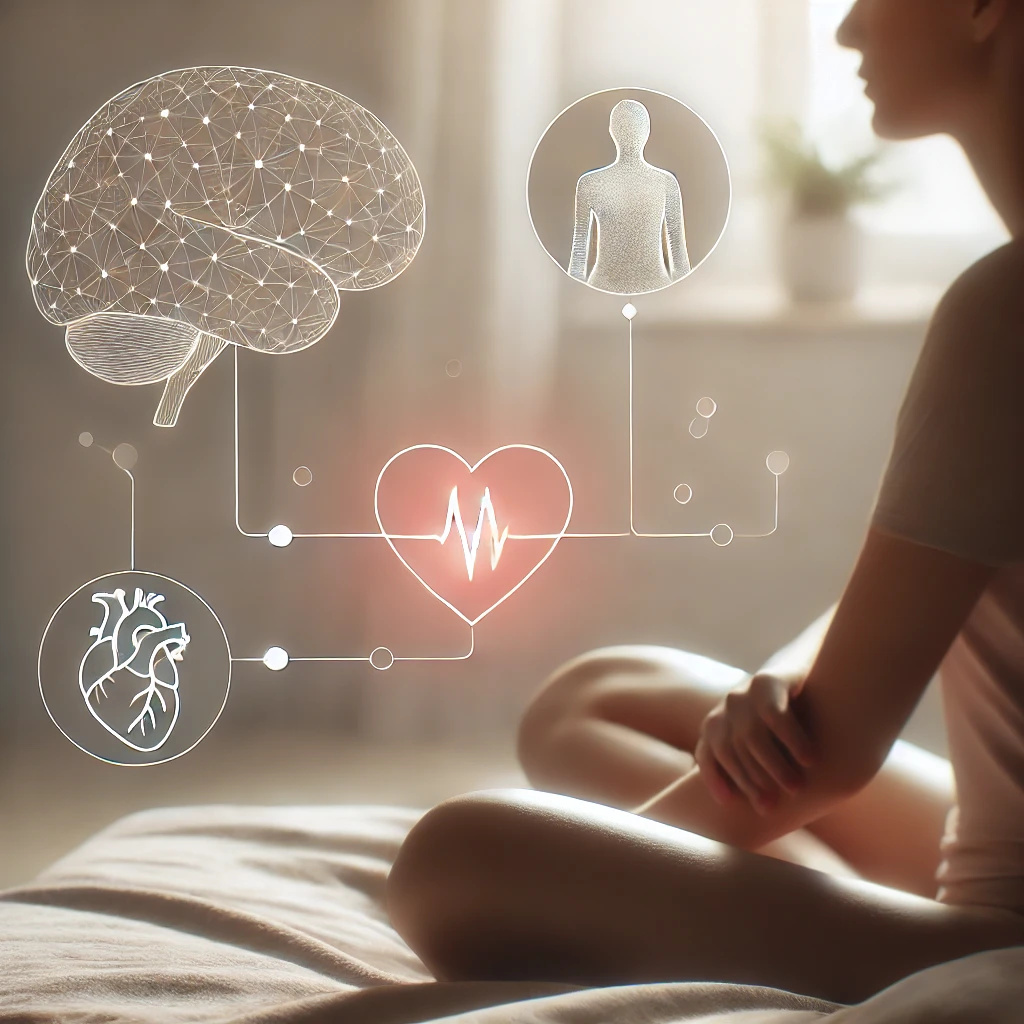What Are Hormones and How Do They Function?
Hormones are chemical messengers the endocrine system produces that regulate various bodily functions, including growth, metabolism, and sexual health. They are secreted into the bloodstream and influence sexual health, libido, arousal, and function through intricate interactions.
Among the key hormones involved in sexual health are testosterone, estrogen, progesterone, and oxytocin. Testosterone is crucial for libido and sexual function in both men and women. Conversely, estrogen, primarily viewed as a female hormone, is vital for regulating the menstrual cycle and promoting sexual wellness. Meanwhile, progesterone, while often linked with reproductive health, also influences libido and sexual satisfaction. Oxytocin, known as the ‘love hormone,’ assists in fostering emotional intimacy during sexual interactions, which can significantly enhance sexual experiences.
Maintaining a hormonal balance is essential for optimal sexual health. Imbalances in these hormones can lead to various issues, including decreased libido, sexual dysfunction, and challenges in sexual performance. Low testosterone reduces sexual desire, while high estrogen can cause sexual wellness issues; hormonal imbalances affect overall satisfaction.
Understanding the role of hormones in sexual health is crucial for addressing potential dysfunction and optimizing sexual experiences. Hormonal therapy effectively restores balance and boosts sexual drive, highlighting the link between hormones and sexual health.
- Clinically Proven Multivitamin Blend: Clinically proven to work better than a basic multi at boosting levels of key nutr…
- Complete Nutrient Support: This high-potency multivitamin features 18 vitamins and minerals at 100% daily value or more.
- Heart Health: Includes vitamin B6 and folic acid, which provide dietary support for your cardiovascular system.
The Impact of Hormones on Sexual Development and Function
The intricate relationship between hormones and sexual health is particularly pronounced during critical life stages such as puberty and adulthood. Hormones like testosterone and estrogen are crucial for sexual organ maturation and secondary sexual characteristics. During puberty, the surge of sex hormones triggers physical transformations; in males, testosterone promotes the development of facial hair, deepens the voice, and encourages muscle growth. In females, estrogen is pivotal for breast development and the menstrual cycle regulation, signifying the onset of reproductive capability.
As individuals transition into adulthood, the role of hormones does not diminish. Hormones are essential for maintaining sexual function, influencing desire, and regulating sexual performance. Fluctuating hormones can lead to erectile dysfunction in men and affect women’s libido, especially during ovulation.

Moreover, the endocrine system continues to affect sexual well-being throughout life. Changes in hormone levels, whether due to aging, stress, or health conditions, can lead to hormonal imbalance, subsequently influencing sexual desire and performance. Both men and women may experience alterations in libido as a result of these fluctuations, demonstrating the profound effects hormones have on sexual development.
- NO
- Made in US
- IMMUNE HEALTH: Our women’s multivitamin gummy is designed to provide women with support for immune health (1) with key n…
Understanding these dynamics is crucial; awareness of how hormones regulate sexual health across the lifespan can empower individuals to seek guidance and support when experiencing sexual dysfunction or changes in sexual desire. Addressing these concerns may involve exploring hormonal therapies aimed at restoring balance and enhancing sexual vitality.
Hormonal Imbalances: Causes, Symptoms, and Solutions
Hormonal imbalances can significantly impact hormones and sexual health, leading to a range of complications that affect both physical and emotional well-being. Various factors contribute to these disruptions, including stress, lifestyle alterations, medical conditions, and the natural aging process. Each of these factors plays a crucial role by influencing the balance of sex hormones such as testosterone, estrogen, and progesterone, which directly influence sexual function and overall quality of life.
Hormonal imbalances can cause reduced libido, mood swings, fatigue, and increased anxiety or depression. The intricate interplay between hormones and sexual well-being means that any disturbance can adversely affect sexual desire and performance.
To mitigate the effects of hormonal imbalances on sexual health, individuals can consider several solutions. A balanced diet, exercise, and stress management support hormonal balance and boost reproductive health.
In cases where lifestyle changes alone may not suffice, professional medical interventions can also be beneficial. Hormonal therapy for sexual health can provide tailored solutions to restore balance within the endocrine system. This may include the administration of bioidentical hormones or other medications aimed at alleviating the symptoms of hormonal imbalance. Understanding the importance of hormones in sex drive helps empower individuals to explore both preventative measures and interventions available for promoting healthy sexual function.
Promoting Hormonal Health for Enhanced Sexual Well-Being
Maintaining hormonal health is crucial for optimizing sexual well-being. An imbalance in hormones can adversely impact sexual desire, performance, and overall reproductive health. Therefore, integrating practical strategies into daily life can significantly enhance sexual health and promote a better quality of life. Nutrition is one fundamental aspect that can influence the endocrine system, affecting the role of hormones in sexual function. A diet rich in healthy fats, proteins, and whole grains can support hormone production. Incorporating foods high in omega-3 fatty acids, such as salmon and walnuts, along with fruits and vegetables, contributes to balanced hormone levels and overall sexual wellness.
Exercise plays an equally vital role in regulating hormones and boosting libido. Regular physical activity helps to maintain healthy hormone levels by reducing stress and promoting weight management. Engaging in a workout routine that includes both aerobic and strength-training exercises can bolster testosterone and estrogen levels, directly impacting sexual desire and performance. Moreover, practices such as yoga and Pilates can assist in reducing cortisol levels, helping to mitigate the effects of stress on sexual health.

Stress management is imperative for hormonal balance. Techniques such as meditation, mindfulness, and deep-breathing exercises can help lower stress hormones, fostering a healthier environment for sexual well-being. In addition, the use of natural supplements, including herbal remedies like ashwagandha and maca root, can enhance libido and support hormonal health. However, individuals should consult healthcare professionals before incorporating new supplements.
Regular health screenings are essential for monitoring hormonal changes and identifying potential issues early. Engaging in open discussions with healthcare providers about sexual health can lead to more personalized assessments and recommendations. This proactive approach not only helps in identifying hormonal imbalances but also encourages a supportive environment for both individuals and couples to explore sexual health matters candidly.
- INCLUDES – TWO 2 lb neoprene coated dumbbells in chartreuse color
- CONSTRUCTION – Iron core made from ASTM A48 Grade 20 grey iron then precision dipped in 3mm of neoprene for safety and c…
- FEATURES – Original Hex Shaped heads prevent rolling; Medium diameter handle provides essential grip and security during…














